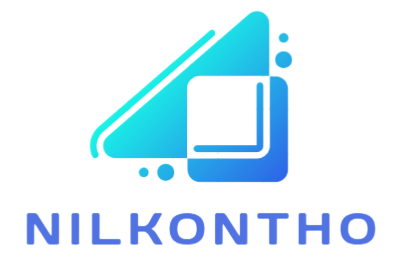Zoho Ventures has set up a good foundation for itself in the US as an unmistakable player in the steadily developing field of undertaking executives. This cloud-based stage is a well-known decision for organizations of all sizes in the nation over because of its persuading blend regarding vigorous highlights, moderateness, and versatility. The features, benefits, suitability for the US market, and comparison to other project management software are all examined in depth in this article.
Realizing the Full Potential of Zoho Projects:
The project lifecycle can be made easier with the numerous features of Zoho Projects. Coming up next is an outline of what it brings to the table: Set deadlines, assign tasks to coworkers, divide them into manageable chunks, and keep track of progress.
Gantt plots: Gantt charts make it simple to see project dependencies and timelines, making scheduling and allocating resources simpler.
Joint effort and correspondence: Using in-application visits, record sharing, and conversation gatherings, groups can convey all the more successfully.
Timekeeping: To ensure accurate billing and resource utilization, keep track of the time spent on projects and other tasks.
Reporting and analysis: Creating adroit reports on project progress, asset assignment, and group execution makes it conceivable to settle on decisions in light of information.
Integrations: Zoho Projects seamlessly integrates with other Zoho applications like CRM, Invoice, and Docs to create a unified business ecosystem for US businesses that rely heavily on the Zoho suite.
Incorporations of Outsiders: Utilize popular third-party tools like Google Drive, Dropbox, and Slack to meet the needs of customers outside of the Zoho ecosystem and improve functionality.
Due to these features, as well as the company’s commitment to data security and global accessibility (supported in more than 25 languages), Zoho Projects is a strong contender in the US project management market.
Zoho Projects A Good Thing for US Business:
Zoho Projects can be extremely beneficial to US businesses, which have a global reach and a wide range of requirements. This is the way:-
Cost-Adequacy: Zoho Projects is an appealing choice for startups and small businesses because it offers a free plan for up to three users. Pricing for paid plans is competitive and is geared toward larger businesses and teams that are expanding.
Scalability: Zoho Projects expands with American businesses. Flexible plans make it possible to add or remove users as needed, ensuring cost-effective growth.
Remote-Friendly: Zoho Projects’ cloud-based architecture makes it possible for geographically dispersed teams, which are common in US businesses, to work together effectively, allowing for smooth project execution regardless of location.
Customization: Businesses can customize workflows and dashboards using Zoho Projects’ decent level of customization. This guarantees a seamless integration into existing project management approaches.
Security and Consistence: With robust encryption and compliance with global compliance standards like SOC 2 and GDPR, Zoho places data security first. For US companies that deal with sensitive data, this is very important.
Notwithstanding, taking into account potential limitations is fundamental:
Curve of Learning: The learning curve for Zoho Projects may be slightly steeper than that of some of its more user-friendly rivals.
Notwithstanding, its instinctive point of interaction and extensive assets can moderate this.
Limited Individualization: Even though Zoho Projects offers some customization options, it might not be able to meet the very specific requirements of some industries.
Standing Out Among the Competition Zoho Projects:
Options abound in the US project management landscape. How does Zoho Projects compare to some of the most well-known brands? Asana: Asana may be a better option for teams that value simplicity because of its user-friendly interface and emphasis on team communication. On the other hand, Zoho Projects has more features for potentially less money.
Trello: Visual learners and agile teams will appreciate the Kanban board-based approach of Trello. Zoho Projects has more in-depth features for more complex projects, while Trello excels in simplicity.
Basecamp: Basecamp is good for small teams because it simplifies communication and project milestones.
Nonetheless, Zoho Undertakings offers unrivaled announcing and time-following abilities.
Microsoft Undertaking: This industry chief takes care of enormous undertakings with complex venture needs. Microsoft Project is powerful, but it is more difficult to learn and costs more than Zoho Projects.
The best option ultimately depends on the company’s requirements, team size, and budget.
Final Advice:
Zoho Tasks – A Reasonable Choice for US Organizations
Zoho Tasks presents a convincing suggestion for organizations of all sizes in the US. It is a strong contender in a crowded market because of its robust features, affordability, scalability, and security. The benefits outweigh the initial obstacle, despite the possible slight learning curve. for businesses in the United States looking for a project management system with a lot of features, that is cheap and can grow.
